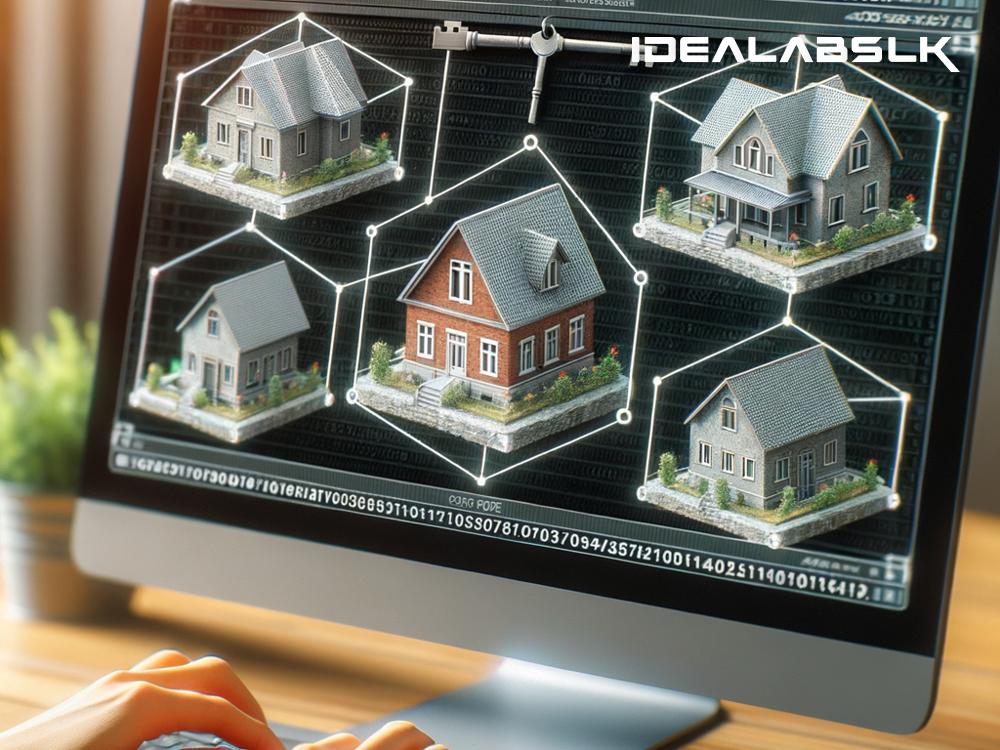Unlocking the Future: How Blockchain is Revolutionizing Property Title Transfers
In the age of rapid technological advancement, blockchain technology is a buzzword that's been circulating across various industries, and for a good reason. Its capabilities extend far beyond its initial cryptocurrency roots, finding practical applications in areas as diverse as healthcare, supply chain management, and, notably, real estate. One of the most groundbreaking uses of blockchain is in managing property title transfers, a process traditionally fraught with inefficiencies, errors, and fraud. But what exactly is blockchain, and how is it poised to transform the real estate landscape? Let's dive in.
Understanding Blockchain
At its core, blockchain is a digital ledger that records transactions across several computers in such a way that the registered transactions cannot be altered retroactively. This characteristic of immutability, alongside the decentralization of data storage, ensures a high level of security and transparency. Each "block" in the chain contains a number of transactions; every time a new transaction occurs, a record of that transaction is added to every participant's ledger. This mechanism underpins cryptocurrencies like Bitcoin, but its potential applications are much broader.
The Current State of Property Title Transfers
Traditionally, transferring property titles is a cumbersome process that involves multiple stakeholders, including government entities, lawyers, banks, and the parties to the transaction. This multi-layered process is not only time-consuming but also susceptible to human error and fraud. Documents can be forged, records can be inaccurately reported, and the whole process can be quite opaque, leading to disputes and legal battles that can last for years. Furthermore, the existing system relies heavily on paper records in many regions, making it difficult to verify the authenticity of titles and the history of transactions.
The Role of Blockchain in Property Title Transfers
Blockchain technology proposes a revolutionary approach to addressing these challenges. Here’s how:
Transparency and Security
By leveraging blockchain for property title transfers, every transaction is recorded on a secure, tamper-proof ledger. Once a property sale is recorded, it cannot be altered or deleted, virtually eliminating the risk of fraud. This feature brings unprecedented transparency to the real estate market, allowing buyers and sellers, as well as lenders and regulators, to track the history of a property through a secure digital trail.
Efficiency and Speed
Blockchain automates and streamlines the title transfer process, significantly reducing the time and paperwork associated with traditional methods. Smart contracts, which are self-executing contracts with the terms of the agreement directly written into lines of code, can automate various steps of the transaction, from verifying funds to updating property records. This means property transactions that used to take weeks or months could potentially be completed in a matter of days or even minutes.
Reduced Costs
By cutting out the middlemen and reducing the need for extensive background checks, blockchain could also lower the cost of title transfers. Costs associated with title insurance, which protects buyers and lenders from potential title disputes, could also be reduced, as blockchain’s transparency and security inherently minimize these risks.
Accessibility
Blockchain can democratize access to property data, enabling a more straightforward verification process for individuals and institutions alike. This increased accessibility could open up new opportunities for investment and development, especially in emerging markets where property title systems are often underdeveloped and prone to corruption.
Challenges and the Road Ahead
Despite its immense potential, the adoption of blockchain in managing property title transfers is not without challenges. Regulatory hurdles, the need for widespread industry adoption, and concerns about privacy and data security are significant obstacles that need to be addressed. Moreover, transitioning from traditional systems to a blockchain-based framework will require substantial investment in technology and training.
The future of blockchain in real estate is, however, undeniably promising. A handful of countries and several private enterprises are already experimenting with blockchain for property titles, with some encouraging results. As technology continues to evolve and stakeholders grow more comfortable with its applications, blockchain's role in transforming property transactions could redefine the real estate market as we know it.
In essence, blockchain offers a more secure, efficient, and transparent method for handling property title transfers, paving the way for a future where real estate transactions are smoother, faster, and more accessible for everyone involved. While challenges remain, the potential rewards for early adopters and innovators are substantial, making the journey towards blockchain integration well worth undertaking.

